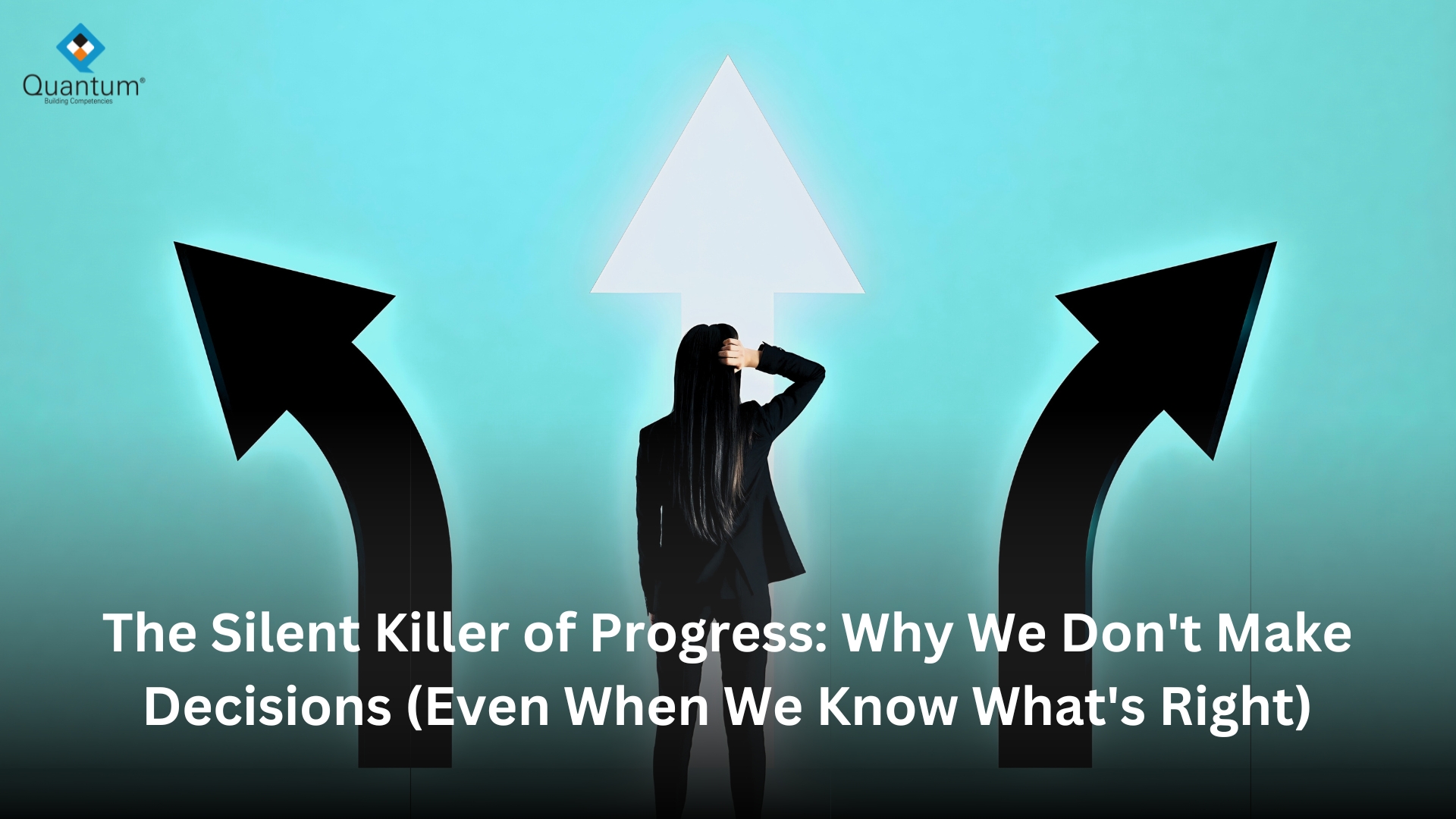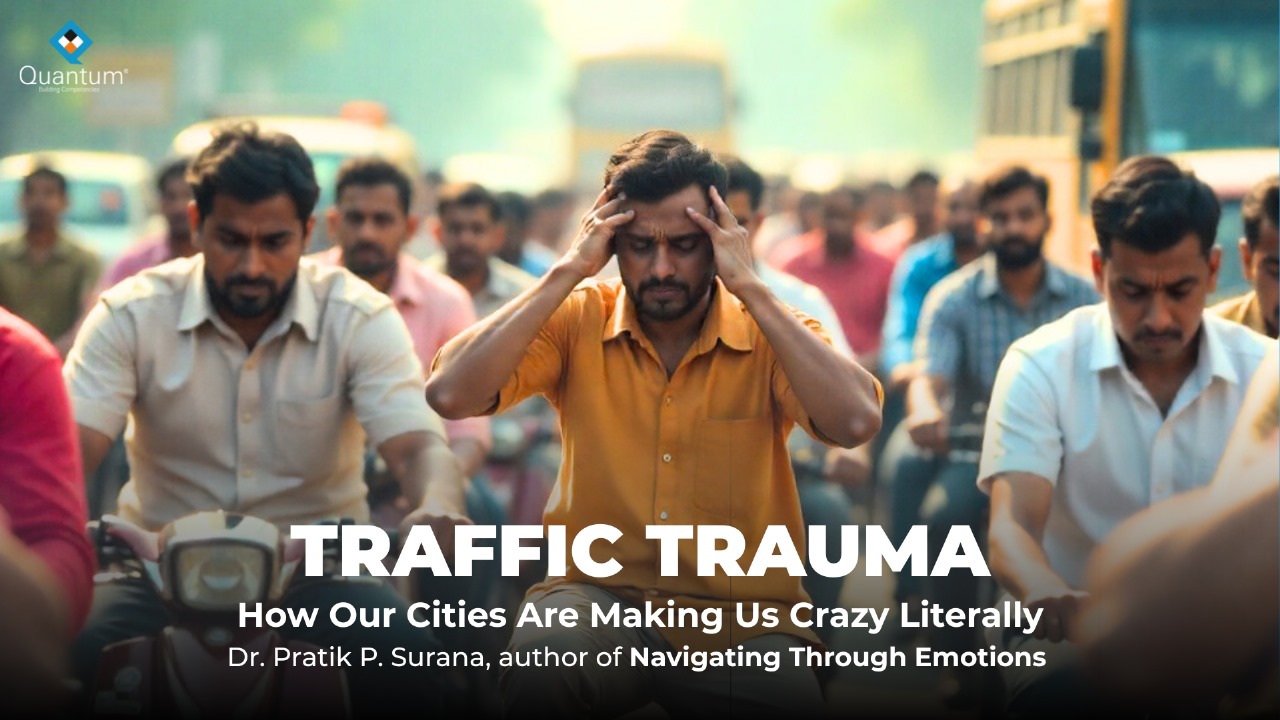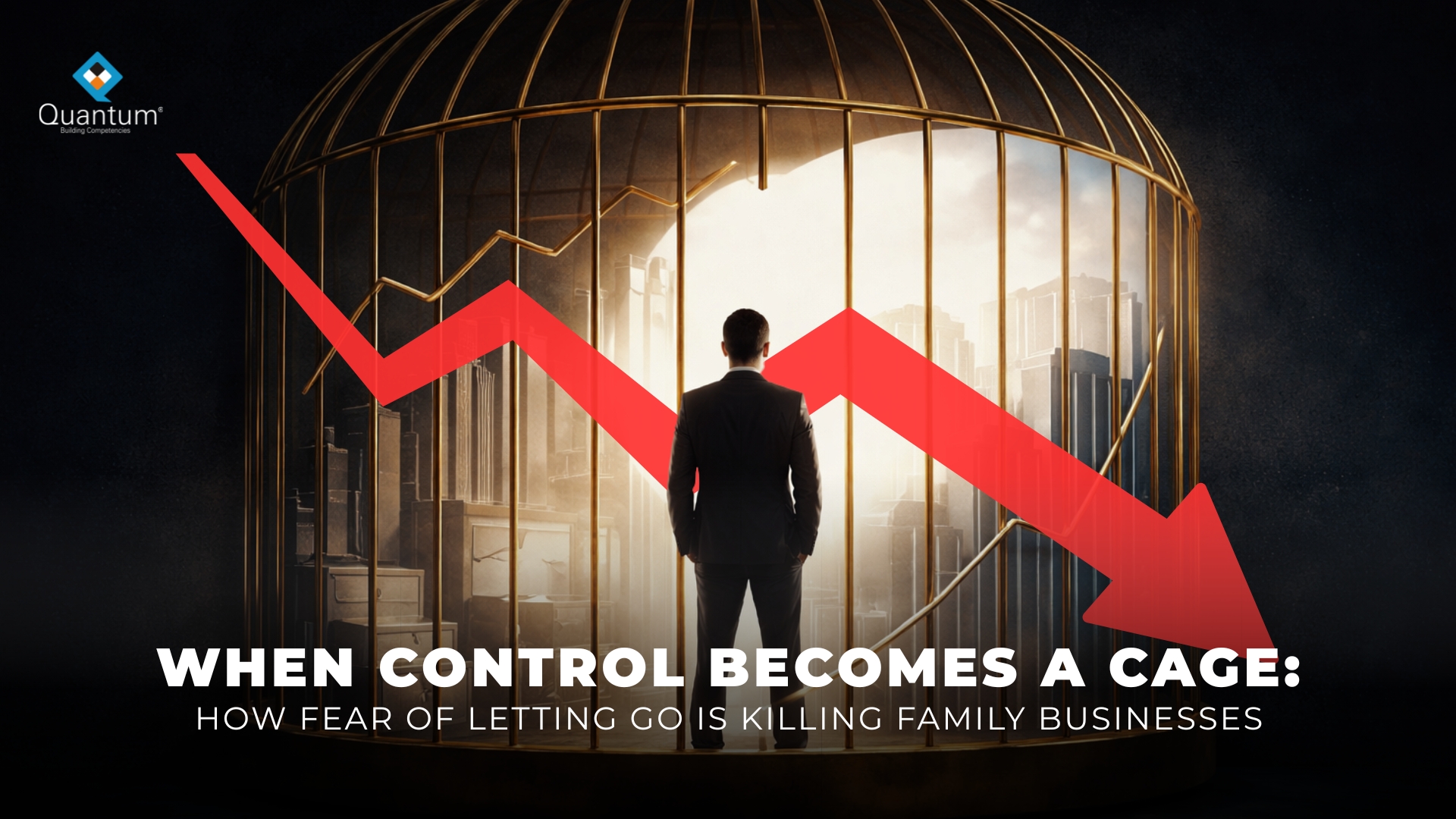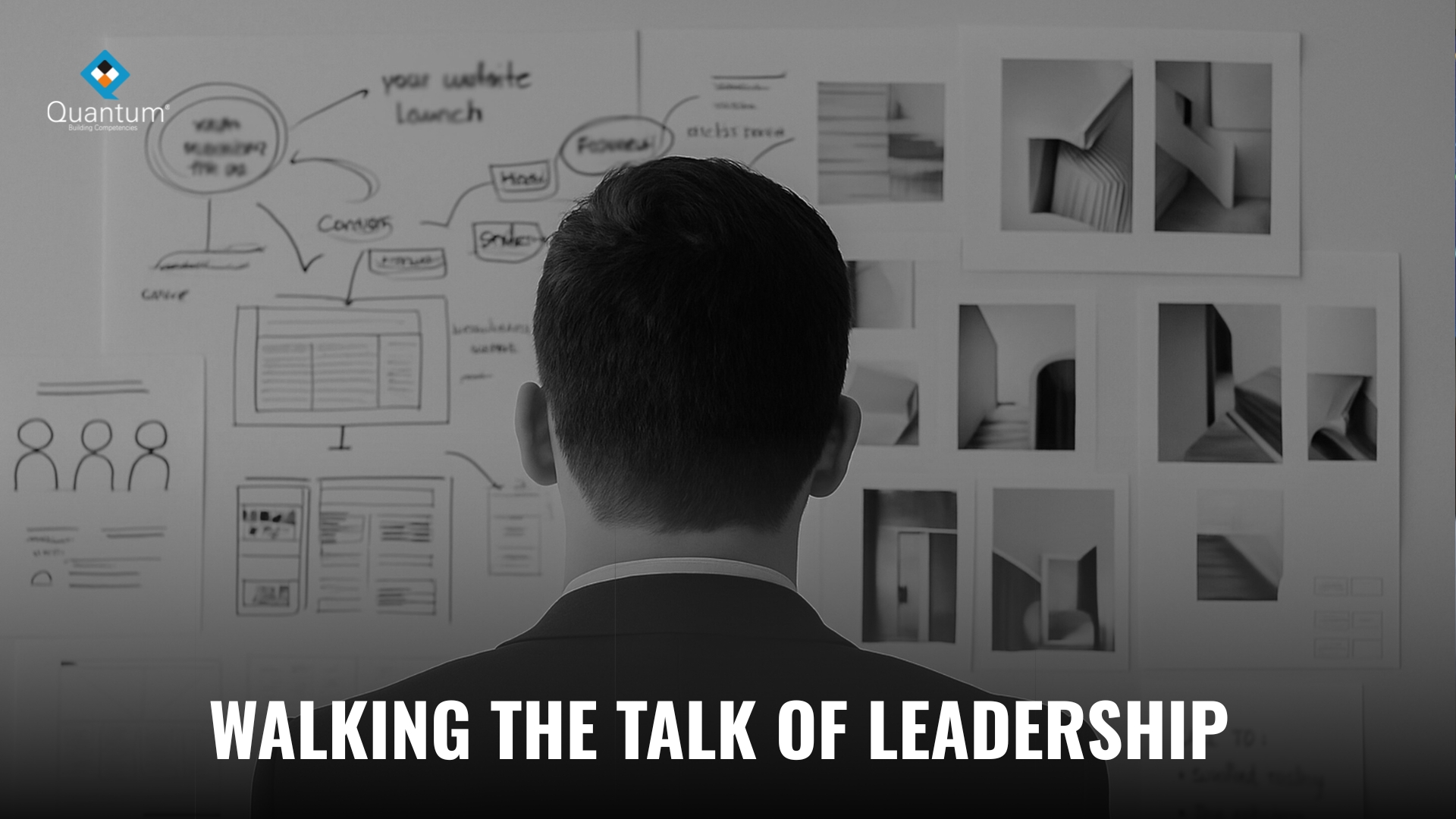
The Silent Killer of Progress: Why We Don’t Make Decisions (Even When We Know What’s Right)
The Monday Morning Meeting, Scene 1 CEO: “So, are we going to go ahead with the launch of the new

How Our Cities Are Making Us Crazy Literally Dr. Pratik P. Surana, author of Navigating Through Emotions
I read notes from my clients and friends every morning while I drink my coffee and get ready for another day of coaching.
And almost often, one of them says:
“Stuck in traffic.” Once more. Going crazy. “Send help.”
I wish I could send a rescue helicopter, but sadly, even that would probably get trapped flying around the flypast that has been ‘under construction’ for the previous five governments.
Let’s be honest: urban India today feels like a psychological experiment that went very wrong.
Our cities are quietly waging a war on our mental health with skyrocketing inflation, crumbling infrastructure, and traffic jams that last longer than some marriages.
I wrote Navigating Through Emotions to assist individuals deal with the stress of everyday life. But I’ll admit that I didn’t completely expect how much of that tension would come from just attempting to move from Point A to Point B in a modern Indian city.
Traffic isn’t only annoying today. It has turned into trauma.
The Daily Commute: A Quick Lesson in How to Break Down Emotionally
You start your day with hope. You might even meditate for a few minutes since you read my book and want to stay centred.
After that, you leave your house.
Five minutes later, a speeding motorcyclist who thinks lane discipline is a Western conspiracy has run over your inner monk.
The usual trip to work in the city:
A pothole so deep that you can glimpse recollections of your past life for a second. A cow in the centre of the road, not disturbed and more Zen than any of us will ever be.
A traffic cop blowing his whistle like it’s a weapon of mass destruction.
An vehicle driver obstructing three lanes at once and saying, “Arre saab, thoda adjust karo na!”
When you finally get to work, your emotional battery is at 2%, your jaw is tight, and you’re ready to snap at the first person who asks, “How was your drive in?”
The Mental Toll of Poor Roads and Planning
Some folks find this funny. They say, “Oh, traffic is just a part of city life.”
No.
Traffic is psychological warfare that seems like a public nuisance.
In Navigating Through Emotions, I talk about how chronic, mismanaged stress hurts our mental health over time.
When you get stuck in traffic every day:
Your cortisol levels go up, making you irritable and anxious.
You lose your sense of control, which is one of the main things that leads to burnout.
Your relationships suffer because when you get home, you’re too tired to be nice to anyone, even yourself.
Take a moment to think about it.
You’d call it torture if someone had you sit in a hot, tight, loud room for two hours every day.
But we term it “commuting” when the chamber has wheels and a horn.
Inflation and Bad Infrastructure = Emotional Apocalypse
As if the traffic problems weren’t bad enough, inflation makes things even worse.
The price of petrol goes up faster than your blood pressure when someone cuts you off in traffic. Your dosa in the morning now costs the same as your monthly allowance when you were a kid. When you pay surge pricing for a cab journey, it feels like buying VIP tickets to a concert called “Watch Yourself Sit Still.”
And then there’s infrastructure, or the lack of it.
It takes decades to create flyovers, and they fall apart at the first monsoon downpour. Drainage systems give up like a Bollywood hero in a sad ending, converting city roadways into lakes. Metro projects tear up whole neighbourhoods, leaving behind dust and confusion.
When it rains, I half-expect to see gondolas instead of cars in several areas.
We term it “urban development.”
Our nerve systems label it “emotional demolition.”
A Typical Work Day Scene
“Why are you late again?” the boss asked.
Employee: “Sir, the traffic.”
Boss: “Traffic isn’t an excuse.”
Employee: “Sir, the road really did go away.” It is now a body of water with buffaloes and two coconuts floating on it.
Boss: Saw at 10:15 AM. No answer.
Traffic as Trauma
When we think of trauma, we picture big, scary things that could kill us.
But there’s also something called “micro-trauma,” which is when your emotional strength slowly wears down over time.
Traffic is a great example:
The uncertainty of not knowing how long you’ll be stuck.
The anger that comes from drivers who don’t care about the rules or traffic jams caused by roadworks.
The feeling of being trapped with no way to get out.
It’s like being in a never-ending mental boxing bout.
Every minute, you’re dodging punches, and sooner or later, you stop fighting back.
How to Get Through This Emotional Mess
In Navigating Through Emotions, I talk about ways that assist my clients deal with situations that can’t be avoided, including traffic:
1. Breathe Like You Mean It
When you sense anger rising, take slow, deep breaths. It won’t fix the problem, but it will keep you from blowing up.
2. Reframe the Situation
Instead of saying, “I’m stuck in traffic,” say, “I’m getting free time to listen to my favourite podcast or maybe even my audiobook.”
(Shameless plug: My book sounds excellent on audio!)
3. Take charge of what you can
You can’t control potholes, but you can control how ready you are. Get up early and bring water, snacks, and music that makes you happy instead of angry.
4. Little Moments of Happiness
Pay attention to the little things that are good, like a hilarious billboard, a kind act from a stranger, or the uncommon miracle of a green light.
These times become lifelines in a sea of anger.
Cities Need Therapy Too
Individual coping strategies are necessary, but the actual answer is systemic change:
Public transport that is reliable and doesn’t seem like a stampede in a pressure cooker. Roads that are made for people, not just cars.
Urban planning that really planned for people instead of just signing contracts for more construction.
Because mental health and physical infrastructure are so closely linked, we need governments that take both seriously.
We are broken when our cities are broken.
The Last Red Light
Every day, I meet folks who are fighting internal fights and public ones at the same time, like on their way to work.
I’ve seen smart, compassionate, and driven people break down emotionally because of the constant stress of living in our cities.
It doesn’t have to be like this.
We can’t make traffic go away overnight.
But we may learn to deal with our feelings while asking for better systems.
Because until our roads are fixed, the only path we can really control is the one in our heads.
And if we don’t go on that trip, the traffic outside will eventually make our hearts stop beating.
When you get delayed at that red light tomorrow morning, take a deep breath, realise that you’re not alone, and tell yourself, “I’m not just going through traffic.”
You’re getting through life.
(And sure, please stop honking so much. It is important for all of our sanity.)
© Dr. Pratik P. SURANA (Ph.D.)
Quantum Group.
#TrafficTrauma #NavigatingThroughEmotions #DrPratikSurana #QuantumGroup #UrbanMadness #MentalHealthOnWheels

The Monday Morning Meeting, Scene 1 CEO: “So, are we going to go ahead with the launch of the new

Scene 1:The Sharma & Sons Pvt. Ltd. boardroom on Monday morning Arjun, the son, said, “Dad, I think we should

“Culture eats strategy for breakfast.” What most leaders forget is that culture eats leaders first. Peter Drucker articulated this decades